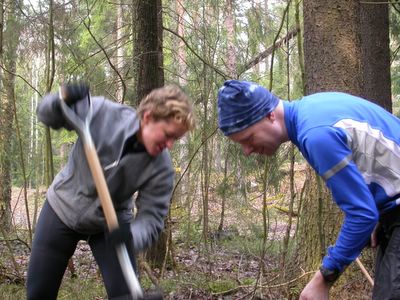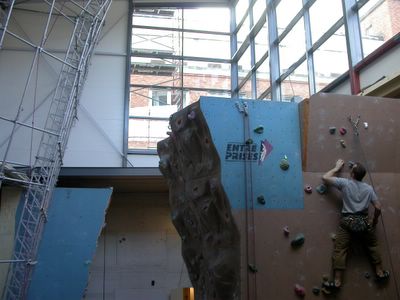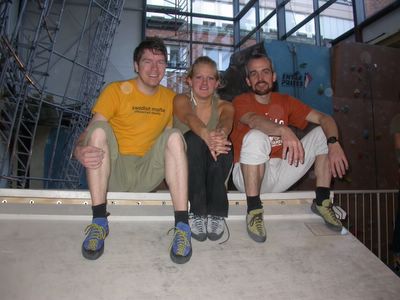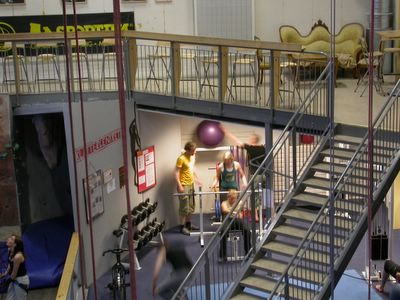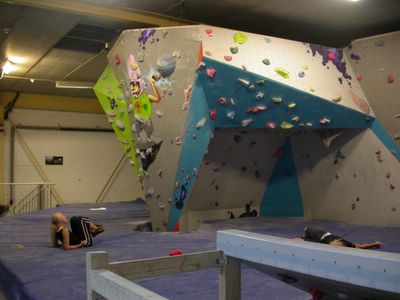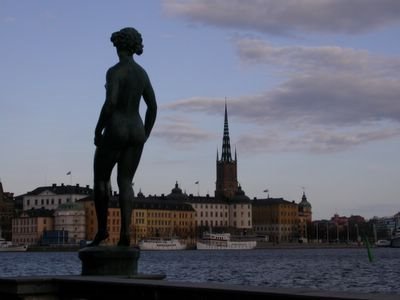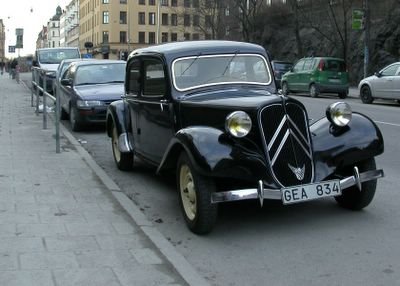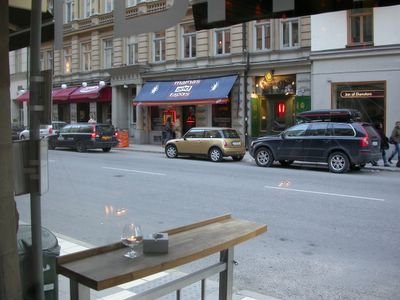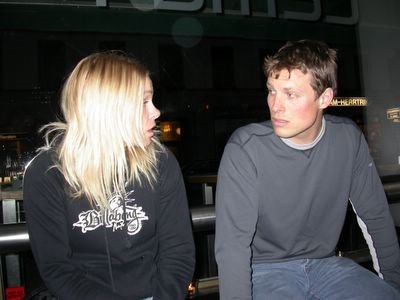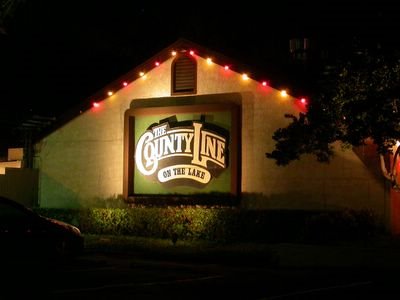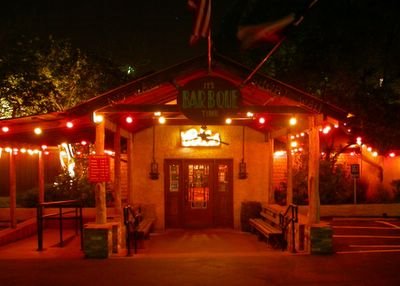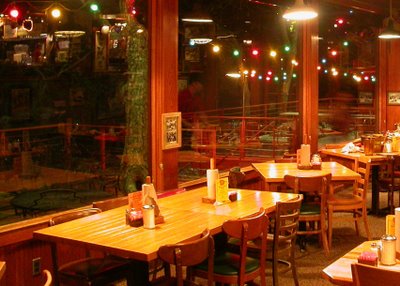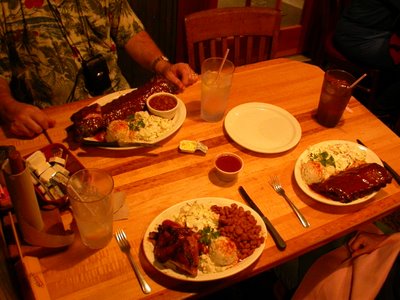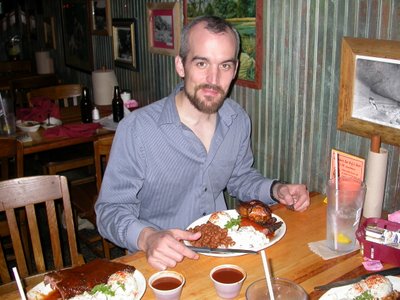For my non-Swedish audience, a little background information might be in order:
Systembolaget is the state-owned company that has a monopoly on private retail sales of alcoholic beverages in Sweden. The debate over whether the monopoly is a good idea has been going on in Sweden ever since the first days of Systembolaget, when the system was developed as a temperate alternative to outright prohibition. In recent times though, Systembolaget itself has largely remained outside of the political debate, prefering instead to do the job with which it was entrusted and to do this job well. The company would frequently offer public service messages about the importance of responsible drinking and so on, but for the most part, it did not play politics.
Well, that was then; this is now.
Systembolaget now finds itselt under threat from within and without. First, public support for the aging monopoly has been waning in recent years. Second, the existence of the state-supported monopoly may violate European law. Systembolaget has probably never been in as grave jeopardy as it is now. Responding to the perceived threat, Systembolaget has now gone on the offensive.
In recent days, Systembolaget launched a campaign to attempt to bolster public support for the monopoly in a time-honored Swedish way: by
treating Swedes like children.
The new television ads ask viewers to take "Systembolagets Lilla Monopolanalys" either online or by telephone. "Answer a brief questionnaire," the ads tell viewers, "to find out whether you support the alcohol monopoly or not."
Most people know where they stand on the issue without getting help from the monopoly-holder itself. I went online and answered the
five questions. The only way to answer the questions is by selecting a number on a scale of 1 to 5. The labels at the ends of the scale vary from one question to the next but the same simple 1-5 scale is used for all five questions. Three of the questions begin with an introductory statement suggesting the "right" answer. Below I have translated all five questions. The introductory text is in
italics.
- How important is it be for you to be able to puchase beer, wine, and spririts in your grocery store?
1=not important at all, 5=very important
- One of the ideas behind having an alcohol monopoly is that alcohol is sold in a more restrained way, so that people don't buy more than they had intended to.
Do you think it would be good or bad if there were volume discounts and other special offers on alcohol?
1=very bad, 5=very good
- Another consequence of selling alcohol without a profit motive is that it's possible to offer a wide selection of, for example, wine in various price classes.
How important is it to you to be able to find many varieties of beer, wine, and spirits to choose from in the same store?
1=not important at all, 5=very important
- Is it important to you that alcohol is sold only with careful ID checks, so that it's difficult for teenagers to buy alcohol?
1=not important at all, 5=very important
- According to a report from the Public Health Insittute, alcohol consumption would increase by an amount equivalent to 3.5 liters of vodka per Swede per year if the monopoly were taken away today.
Are you worred that alcohol consumption would increase in Sweden?
1=not at all worried, 5=very worried
When I had completed the questionnaire, I provided a telephone number for a call back from the recorded, packaged voice of
Anitra Steen, general manager of Systembolaget. The call came about 5 minutes later. Her summary of my answers and her view of their meaning was so blatantly condescending and patronizing as to be almost laughable.
Anyone with a 4th-grade education can see that the questions and the introductions are worded in such a way as to lead the reader toward a particular answer. But the problems don't end with leading questions. The questions are also phrased in such a way as to ask the respondent to make a false choice. Many viable alternatives are not provided. These questions are a lot like
Stephen Colbert's oft-repeated question:
"George W. Bush: great president, or the greatest president?"
As Malin
pointed out, they're also a lot like another time-honored example:
"Have you stopped beating your wife? Yes or no?"
Frustrated by the experience, I wrote a nice long letter to Systembolaget's customer service folks and pointed out the problems with their "analysis." I received a curt but polite "thanks for your feedback" reply but no substantive response to the problems I pointed out.
Here are some of the "facts" stated and implied in the questions and the subsequent "analysis," plus a word or two about why they're fallacious:
Fact 1. The only way to get rid of the Systembolaget is whole-hog. If you get rid of the monopoly, you have to allow alcohol sales everywhere: ICA, Konsum, Hemköp, 7-11, ice-cream trucks, and toy stores.
Why it ain't so: It's also possible to do something like Colorado and Texas, where beer and wine are available at grocery stores, but strong types of alcohol may be obtained only at state-licensed liquor stores.
Fact 2. It's the state's job to protect people from their own excesses. One way the state can accomplish this is by making it cumbersome to purchase alcohol.
Why it ain't so: People are responsible for their own actions. It's only when someone begins to infringe on the liberties of others that it's the state's job to step in.
Fact 3. A company can offer a wide selection of goods only if it has no profit motive (i.e., a state-sponsored monopoly).
Why it ain't so: Yeah, like "Would you prefer a light gray or dark gray Trabant?" Consumer demand will ensure that popular goods are stocked. If customers demand it, merchants will supply it. And for rarer, less popular items there are always specialty shops and Internet shops. When it comes to variety, heck, the Central Market on Lamar Boulevard in Austin has a broader selection of beer and wine than any Systembolaget I've been to. Do you think they have trouble turning a profit?
Fact 4. The only way to enfoce ID checks for alcohol purchases is a state-sponsored monopoly.
Why it ain't so: Where do these people come from? Why not just enforce existing laws and dole out harsher punishments for law-breakers?
Fact 5. If Sweden did away with the alcohol monopoly, it would have to do abbruptly; Swedes couldn't handle cheap alcohol and society would collapse.
Why it ain't so: First of all, it doesn't have to be done overnight. The monopoly could be eliminated bit by bit, in phases. This would give folks a chance to get used to the changes. Secondly, people aren't stupid. They learn and adapt to new situations. Even heavy-drinking Swedes will realize their limits.
The last one deserves a bit more attention: Limiting availability of alcohol only increases its mystique and allure. Incidentally, this is the same thing that happens when one raises the taxes on alcohol. If the taxes were also lowered, Swedes would gradually adapt and drink less. Once the perceived value of the substance falls to meet the actual production value, people cease to be as fascinated by it. In countries like France and Spain where alcohol is much less expensive, people drink moderately during the week rather than binge drinking on the weekends. A beer or wine with one's meal on Tuesday is certainly better for one's health than a string of cocktails at a bar on Saturday night. But most Swedes don't drink in a moderate, everyday way because they think it's too expensive. Drink is something to be reserved for special, no-holds-barred occasions. Why do Swedes go nuts when they're vacationing in the Mediterranean? Because they've only a short time to booze it up before returning to exorbitant Sweden. Swedes will adapt.
When I first visited Systembolaget's web page to find the "monopolanalys," I half-expected to find questions to spark debate, pique interest, and raise alternative points of view from both sides of the table. Instead, I found self-serving propaganda that seems to be based on the assumption that Swedes are ignorant and impressionable juveniles.
But I know that Swedes are smart; they can take care of themselves, and they see right through this sort of crap.
Systembolaget, get out of the propaganda game. You're not politicians, so don't play like it.
